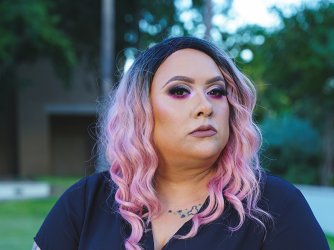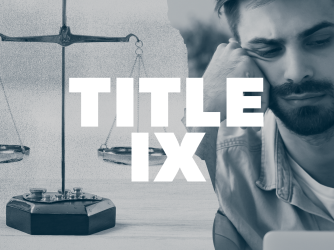Table of Contents
‘Chronicle of Higher Education’ Shares ‘Nine Views on What Will Signal Progress’ in Fight Against Campus Sexual Assault

Everyone concerned about campus sexual assault wants to reduce its incidence. To that end, The Chronicle of Higher Education poses a key question: What will it look like when we’ve started to make progress?
In nine short statements, 10 writers share what they would like to see change at colleges and universities nationwide. Among them, FIRE’s Samantha Harris emphasizes the need to “move beyond the moral panic” that hinders productive discussion on this issue. Other contributors, too, have points well worth considering.
As Sam argues, “Real progress against sexual assault on campus will require colleges to respond in a way that is rational and respects the rights of all involved.” Right now, though, colleges are under significant pressure to abandon due process rights for accused students in order to facilitate outcomes that favor their accusers—and they are caving to that pressure. What’s more, in the current climate, ideas that could potentially help protect all members of the campus community are cast aside without consideration:
[T]oo many serious proposals for reform, such as calls for greater due-process protections or arguments in favor of mandatory reporting to law enforcement, are dismissed as insensitive or even sexist. Only when we move beyond the moral panic that informs almost every conversation about this issue can we begin to talk productively about how to create policies that adequately protect students and yield the fairest and most accurate outcomes.
In his statement, University of Chicago constitutional law professor Geoffrey Stone reiterates the need for students accused of sexual misconduct to receive fair hearings:
[C]olleges must commit to a set of fair procedures. Because a finding that one has committed sexual assault carries potentially grave consequences, colleges should employ procedures that fully respect the demands of due process. These include a right to a fair and impartial decision maker, a right to the assistance of counsel, a right to confront the witnesses, a right to present evidence, a right to appeal, and a right not to be found guilty in the absence of clear and convincing evidence.
Stone and Laura Bennett, president of the Association for Student Conduct Administration, both argue that students must be given clearer indications of precisely what behavior is prohibited under sexual assault provisions in their colleges’ conduct codes. As we’ve written on The Torch before, the adoption of “affirmative consent” standards is becoming more common and is sure to increase confusion on the matter. (Unfortunately, Bennett’s statement wasn’t all reasonable: She also proposed that “faculty discuss consent and healthy and unhealthy relationships in every course.” Do students really need to hear about sex in their course on “Topics in Geometric Partial Differential Equations”? A requirement that professors spend class time on wholly irrelevant topics runs contrary to principles of academic freedom and of common sense.)
The Chronicle piece highlights a range of views, including those of victims’ advocates, college administrators, and Sherry Warner Seefeld, the president of Families Advocating for Campus Equality and mother of former University of North Dakota student Caleb Warner. In a FIRE case from 2010, UND found Warner guilty of sexual assault, banned him from campus, and suspended him for three years, despite the fact that evidence in his case led North Dakota law enforcement to charge his accuser with making a false report to police. Warner Seefeld writes that progress will be demonstrated by a return to “our American belief in ‘innocent until proven guilty.’”
Read all nine viewpoints in The Chronicle of Higher Education.
Recent Articles
FIRE’s award-winning Newsdesk covers the free speech news you need to stay informed.


FIRE statement on campus violence and arrests

BREAKING: New Title IX regulations undermine campus free speech and due process rights
